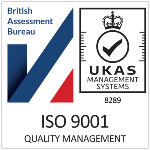Having purchased your new polypropylene carpet, it is natural to want to maintain it. We have put together a short guide to help with this.
Daily Care
It is very important that regular vacuum cleaning is carried out as soon as the carpet is installed two to three times a week – every day if possible, giving particular attention to areas in front of seating, and in high traffic areas, make a minimum of three passes in these areas.
One of the most effective cleaners for a twist or cut pile carpet in one with a strong suction and a revolving beater bar/brush. This will generally be an upright vacuum cleaner. This will not only remove surface dirt, but also opens up the pile to remove loosely embedded soiling.
An upright vacuum cleaner will also remove the excess fibres of a new carpet ensuring that these are not collected within the pile. The beater bar will also ensure that the pile is ‘lifted’ each time the carpet is maintained.
A doormat will reduce dirt from outside being spread. Vacuuming them regularly will enable them to keep trapping dirt before it gets to your carpet. Removing Shoes will help to reduce wear and tear.
Seasonal Care
There are several methods available for the seasonal cleaning of carpets including spray extraction (also called steam cleaning), rotary brush shampooing, dry foam cleaning and dry powder systems. The method chosen and the frequency of cleaning depends on the intensity of traffic, the nature of the soiling and the type of carpet. This type of cleaning is best left to the professional.
Carpets are chosen with care and represent a sizable investment both for home owners and commercial establishments. Such an investment can now be protected by the way the floor covering is maintained.
Stain Removal
No matter how careful a person is, sooner or later carpets will become stained as a result of spillage and domestic mishaps. Prompt and correct treatment will remove many of these stains and leave the carpet in a satisfactory state.
The golden rule with stains is to act quickly to remove the spilt substance before it penetrates the carpet pile. Stains which have been allowed to dry are more difficult if not impossible to remove.
1. Scoop up solids with a knife or spoon.
2. Blot up liquids by applying pressure with white paper towels or tissue.
3. Before treating the stain, test the treatments on an inconspicuous part of the carpet for possible colour change.
4. Apply to a white towel or kitchen roll, not directly onto the stain
5. With blotting or dabbing motion, work inwards from the edge of the stain to prevent it spreading.
6. Do not rub the carpet pile during the stain removal or rinsing stages.
7. When attempting to remove stains, ensure that the carpet is dry before proceeding to the next step of the treatment.
8. Rinse by applying a small amount of clear tepid water using a clean cloth or sponge.
9. Once the stain has been removed, blot up moisture by applying pressure with white paper towels or tissues.
10. Do not walk on the carpet until dry.
Please note – If bleach is required we recommend it is diluted 25% bleach to 75% water.
Please note – Never use detergents such as dish soap or other cleaners recommended for household use, although they may clean the carpet, they will cause problems such as damage to the pile/backing of the carpet & rapid re soiling.

